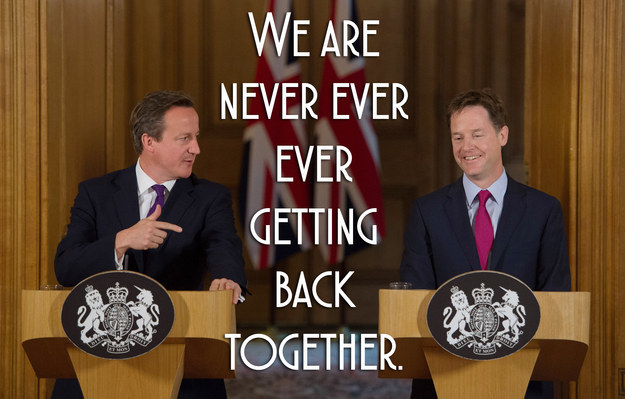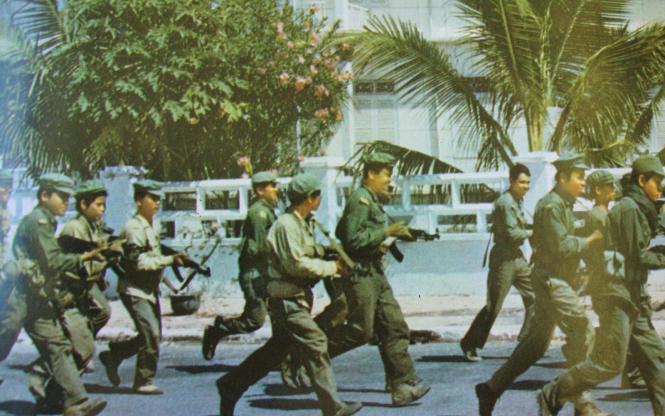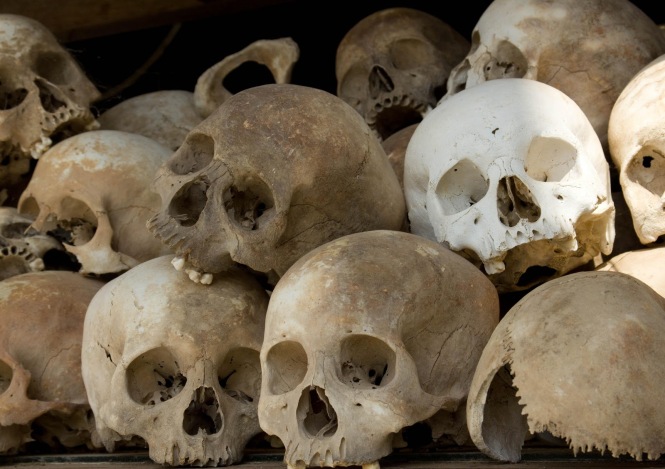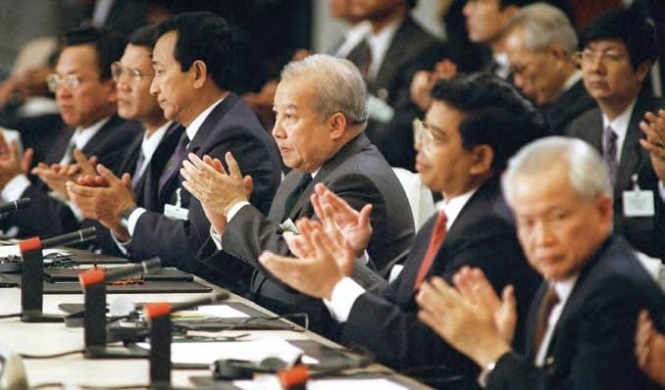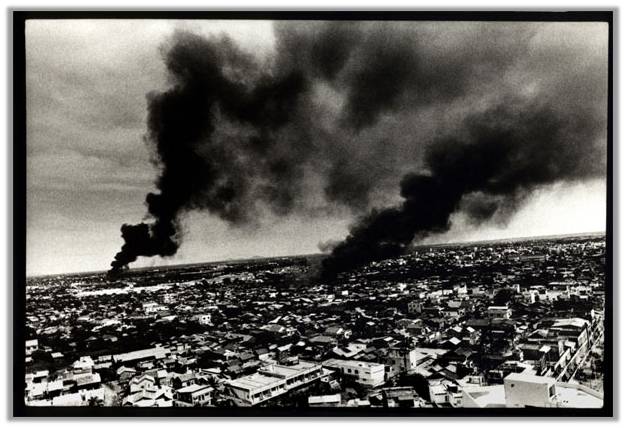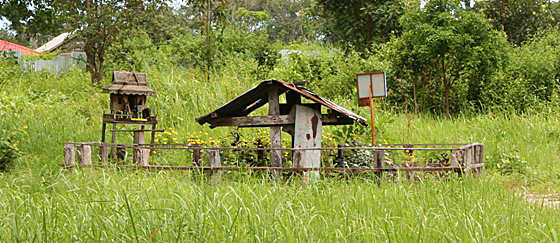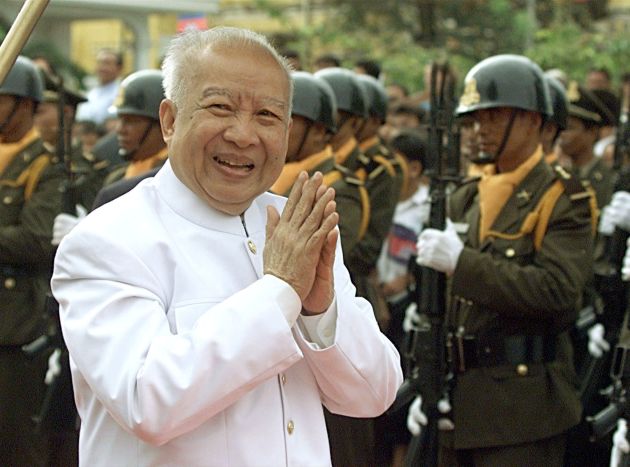[Opening credits – a montage of campaign rallies across the country, to the tune of Welcome to New York]
“Everybody here wanted something more, searching for a sound they hadn’t heard before.”
“Like any great lie, it keeps you guessing, like any real lie it’s ever changing, like any true lie it drives you crazy.”
[Final meeting of the Quad, to the tune of The Last Time]
David Cameron: “This is the last time I’m asking you this.”
Nick Clegg: “I find myself at your door, just like all those times before.”
George Osborne: “I was there to watch you leave.”
Danny Alexander: “All roads, they lead me here.”
George Osborne: “This is the last time you tell me I’ve got it wrong.”
Danny Alexander: “This is the last time I say it’s been you all along.”
David Cameron: “This is the last time I let you in my door.”
Nick Clegg: “This is the last time, I won’t hurt you any more.”
[Liberal Democrat parliamentary party, no music initially, then into We Are Never Ever Getting Back Together]
Backbench Liberal Democrat MP: “Rose garden filled with thorns.”
Nick Clegg: “Don’t say I didn’t, say I didn’t warn you, so it’s going to be forever or it’s going to go down in flames, you can tell me when it’s over if it was worth the pain.”
Backbench Liberal Democrat MP: “You’ll see me in hindsight.”
Nick Clegg: “It’s been a long six months.”
Backbench Liberal Democrat MP: “It was months and months of back and forth.”
Nick Clegg: “We are never, ever, ever, getting back together.”
Backbench Liberal Democrat: “You go talk to your friends, talk to my friends talk to me.”
Nick Clegg: “I used to think that we were forever?”
Backbench Liberal Democrat MP: “No.” “You chose the Rose Garden over Madison Square.”
[Conservative strategy negotiations – in CCHQ, to the tune of Style]
David Cameron: “We never go out of style, we never go out of style.”
George Osborne: “Are we out of the woods yet, are we out of the wood yet, are we out of the woods yet, are we out of the woods, are we in the clear, are we in the clear?”
Lynton Crosby: “Looking at it last December, we were built to fall apart, then fall back together.”
David Cameron: “Remember when you hit the brakes too soon?”
George Osborne: “You were looking at me, oh, you were looking at me.”
Iain Duncan Smith [behind a closed door]: “Why’d you have to go and lock me out when I let you in?”
David Cameron: “Stay, hey”
Iain Duncan Smith: “You say you want it, back now that it’s just too late.”
[Election debate – to the tune of Bad Blood]
David Cameron: “This slope is treacherous, this path is reckless.”
Ed Miliband: “You made a really deep cut.”
Nick Clegg: “Did you have to do this? I was thinking you could be trusted.”
David Cameron: “Did you have ruin what was shining, now it’s all rusted?”
Ed Miliband: “Did you think we’d be fine?”
David Cameron: “Long handwritten note, deep in your pocket.”
Nigel Farage: “Now we got problems, and I don’t think we can solve them.”
Ed Miliband: “You made a really deep cut.”
David Cameron: “Band aids don’t fix bullet holes.”
Nick Clegg: “You live like that…”
Ed Miliband: [interrupting] “You say sorry just for show.”
Nicola Sturgeon: “So don’t think it’s in the past, these kinda wounds they last and they last now.”
Nigel Farage: “And I could go on and on, on and on.”
Natalie Bennett: “You always knew how to push my buttons.”
Leanne Wood: “Did you think it all through? All these things will catch up to you.”
Nigel Farage: “It’s so sad to think about the good times.” “It’s like driving a new Maserati down a dead-end street.”
Nicola Sturgeon: “I knew you were trouble.”
Leanne Wood: “You’re drowning.”
[Living room of undecided voters, to the tune of How Your Get the Girl]
[News report of day’s campaigning playing on TV]
David Cameron: “She’ll open up the door.”
Ed Miliband: “Here we are, see my face, hear my voice:”
David Cameron: “You were too afraid to tell her what you want.”
Ed Miliband: “That’s how it works. They don’t want you to know”
[Camera pans to Nigel Farage addressing a UKIP rally]
Nigel Farage: “Remind me how it used to be.”
Undecided voter #1: “He’s so bad, but he does it so well.”
[Back to David Cameron]
David Cameron: “Say you want me. I’ll put it back together.”
Undecided voter #2: “His voice is a familiar sound.”
Undecided voter #3: “We are alone with our changing minds.”
Undecided voter #4: “I can’t decide if it’s a choice. ”
[Labour party election broadcast, to the tune of Red]
Soundtrack: “And that’s why he’s spinning round in my head. Comes back to me, burning red.”
[Voting, montage of voters at polling stations, to the tune of Blank Space]
Voter #1: “I’ve got a blank space baby and I’m going to write your name.”
Voter #2: “So I punched a hole.”
[Election night, to the tune of 22]
Commentator: “It feels like a perfect night for breakfast at midnight.”
Jeremy Vine: “It’s 2am.”
John Curtice: “It’s miserable and magical at the same time.”
Jeremy Vine: “I don’t know about you.”
John Curtice: “It seems like one of those nights.”
Jeremy Vine: “We won’t be sleeping.”
Commentator: “Everything will be alright.”
Jeremy Vine: “You look like bad news.”
John Curtice: “Tossing, turning, struggled through the night.”
[Cuts to count where heavy favourite has lost]
Reporter: “And you were just gone and gone, gone and gone.”
Defeated candidate: “Heaven can’t help me now”
Defeated candidate: “There was nothing left to do.”
[Coalition negotiation part 1, to the tune of All Too Well]
Nick Clegg to Ed Miliband: “Here you are now, calling me up, but I don’t know what to say, I’ve been picking up the pieces of the mess you made.”
Ed Miliband: “I wish you would come back, I wish I never hung up the phone like I did.”
Nick Clegg: “You know baby we’ve got bad blood. Take a look what you’ve done.”
Ed Miliband: “Say you’ll remember me.”
Nick Clegg: “In your wildest dreams.”
Ed Miliband: “Maybe we got lost in translation, maybe I asked for too much.”
Nick Clegg: “This thing was a masterpiece until you tore it all up.”
Ed Miliband: “You remember it all too well.”
[Coalition negotiations part 2, still to the tune of All Too Well]
David Cameron: “I walked through the door with you”
Nick Clegg: “Something about it felt like home somehow
David Cameron: “I’m never going to risk it.”
Nick Clegg: “Realising all you ever wanted was right in front of you.”
David Cameron: “This love left a permanent mark.”
Nick Clegg: “You come back to what you need.”
David Cameron: “Flew me to places I’d never been.”
Nick Clegg: “Your sweet disposition.”
[SNP strategy meeting, to the tune of I almost do]
Nicola Sturgeon: “It takes everything in me not to call.”
Alex Salmond: “I bet it never occurred to you.”
Nicola Sturgeon: “We made quite a mess, babe.”
Alex Salmond: “It’s probably better off this way.”
Nicola Sturgeon: “Want to try again?”
Alex Salmond: “I almost do.”
Nicola Sturgeon: “Without me?”
[Coalition negotiations part 3, to the tune of Stay, Stay, Stay]
Nicola Sturgeon: “You think it’s funny when I’m mad, mad, mad.”
Ed Miliband: “All those times you didn’t leave; it’s been occurring to me I’d like to hang out with you.”
Nicola Sturgeon: “I think it’s best if we both stay.”
Ed Miliband: “I’ve been loving you for quite some time.”
Nicola Sturgeon: “You took the time to memorize me: my fears, my hopes and dreams.”
Ed Miliband: “You have given me no choice but to.”
Nicola Sturgeon: “Put my name at the top of your list.”
[Outside No 10 Downing Street]
Prime Minister: “This is the golden age of something good and right and real.”
